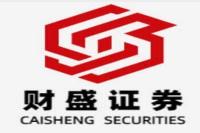中国汽车工业强劲增长:新能源汽车领跑未来
元描述: 深入探讨中国汽车工业前三季度发展态势,重点分析新能源汽车的强劲增长,以及未来发展趋势和挑战。包含行业数据、专家解读和市场展望,为投资者和行业人士提供有价值的信息。关键词:中国汽车工业,新能源汽车,汽车产业,汽车出口,行业增长
Whoa! Did you hear the news? China's auto industry is absolutely booming! Forget slowdowns – we're talking serious growth, especially in the electric vehicle (EV) sector. This isn't just some fleeting trend; it's a full-blown revolution, reshaping the global automotive landscape. This article delves deep into the numbers, the trends, and the future of this dynamic industry, revealing the fascinating story behind the headlines. We'll unpack the official government data, explore the key drivers of this impressive growth, and offer insights into what this means for consumers, investors, and the global automotive market. Prepare to be amazed by the sheer scale of China's automotive success story, from its traditional car manufacturing prowess to its groundbreaking advancements in EV technology. We'll unravel the complexities, decipher the jargon, and paint a vivid picture of the opportunities and challenges that lie ahead. Get ready for an in-depth analysis that will leave you completely informed and, dare I say, inspired! This isn't just about numbers; it's about the human stories behind the wheel, the innovative minds driving progress, and the future of mobility in the world's most populous nation. Buckle up, because this is going to be a wild ride!
新能源汽车:中国汽车产业的未来引擎
The recent press conference by the Ministry of Industry and Information Technology (MIIT) painted a rosy picture of China's automotive sector. The overall growth is impressive, but it's the explosive surge in the New Energy Vehicle (NEV) market that truly grabs attention. The numbers speak for themselves: a 31.7% increase in NEV production and a whopping 32.5% jump in sales during the first three quarters of the year! This isn't just incremental growth; it's a paradigm shift. The fact that NEV passenger car sales consistently exceeded 50% of the market over the past three months is a testament to the rapid adoption of electric vehicles in China. This isn't just a trend; it's a transformative force that's rewriting the rules of the automotive game. The success isn't limited to the domestic market either; NEV exports soared by a remarkable 12.5%, showcasing the growing global demand for Chinese-made electric cars.
This phenomenal growth isn't accidental. It's the result of a concerted government effort to promote NEV adoption, coupled with aggressive investment and innovation by Chinese automakers. Government incentives, stricter emission standards, and a rapidly expanding charging infrastructure have all played a crucial role in fueling this impressive rise. Meanwhile, domestic companies are developing cutting-edge battery technologies and smart car features, making their products increasingly competitive in both domestic and international markets. This synergistic relationship between government policy and private enterprise has proven incredibly effective, and the results are plain to see.
Furthermore, the growth isn't just about quantity; it's about quality. Chinese automakers are no longer simply producing cheap, basic EVs. They're creating sophisticated, feature-rich vehicles that compete head-to-head with established global brands. This improvement in quality and design has played a pivotal role in increasing consumer confidence and driving demand. The rise of domestic brands signifies a monumental shift in the global automotive landscape, further highlighting China's growing influence in this critical sector.
深入探讨中国新能源汽车市场的增长因素
Several key factors contribute to the meteoric rise of China's NEV market:
-
Government Support: Subsidies, tax breaks, and favorable policies have made EVs significantly more affordable and attractive to consumers. Think of it as the automotive equivalent of a massive tax cut specifically for EVs!
-
Technological Advancements: Chinese battery technology is rapidly advancing, leading to increased range, faster charging times, and reduced costs. This is a game-changer, addressing many of the previous concerns around electric vehicle adoption.
-
Expanding Charging Infrastructure: The dramatic expansion of public charging stations throughout the country has eased range anxiety, a major hurdle for potential EV buyers. No more "range anxiety" road trips!
-
Rising Consumer Awareness: Growing environmental consciousness and a desire for more sustainable transportation options are driving consumer demand. It's no longer just about the price tag; it's about environmental responsibility.
-
Competitive Pricing: Chinese EV makers are offering competitive pricing, making electric vehicles accessible to a broader range of consumers.
| Factor | Impact on NEV Market Growth |
|----------------------|----------------------------|
| Government Incentives | Significantly increased affordability |
| Technological Advancements | Improved range, charging speed, and cost |
| Charging Infrastructure | Reduced range anxiety |
| Consumer Awareness | Increased demand for sustainable transportation |
| Competitive Pricing | Broadened access to EVs |
This multifaceted approach has created a perfect storm for NEV growth in China. This synergistic effect is what sets China's approach apart from other countries trying to promote electric vehicle adoption.
中国汽车工业整体表现:稳定增长中的挑战与机遇
While the NEV sector is stealing the show, the overall performance of the Chinese automotive industry is equally impressive. Production and sales figures for the first three quarters of the year show a steady increase, indicating a healthy and resilient industry. This stability is particularly noteworthy given the global economic uncertainties. The fact that the overall industry is still managing strong growth alongside the phenomenal success of NEVs demonstrates the robustness of the sector as a whole.
However, this success isn't without its challenges. The global chip shortage caused some hiccups along the way, reminding us that even the most vibrant industries can be affected by external factors. Competition is also intensifying both domestically and internationally, with established global brands increasingly vying for a slice of the Chinese market. Maintaining this momentum will require continued innovation, strategic investments, and a keen eye on evolving consumer preferences.
The export numbers are particularly encouraging. China's auto exports have witnessed a significant upswing, demonstrating the growing global recognition of the quality and competitiveness of Chinese-made vehicles. This expansion into international markets is a key indicator of the industry's maturation and its potential for continued growth. It's no longer just a domestic success story; it's becoming a global powerhouse.
This sustained growth in both the domestic and international markets highlights the resilience and adaptability of the Chinese auto industry. The fact that both traditional vehicles and NEVs are exhibiting strong growth speaks volumes about the sector's ability to navigate challenges and capitalize on opportunities.
中国汽车工业的未来展望:持续增长与可持续发展
Looking ahead, the future of China's automotive industry looks bright, but not without its hurdles. Maintaining this impressive growth trajectory will require ongoing efforts in several key areas:
-
Technological Innovation: Continued investment in battery technology, autonomous driving systems, and other advanced technologies will be crucial for remaining competitive in the global market.
-
Infrastructure Development: A seamless charging infrastructure network is essential to support the expanding NEV market.
-
Talent Acquisition: Attracting and retaining skilled engineers and technicians will be vital for driving innovation and maintaining a competitive edge.
-
Sustainability: Balancing economic growth with environmental sustainability will be a key challenge going forward.
The Chinese government is already working to address these challenges. The "Made in China 2025" initiative is focused on transforming the nation into a global manufacturing powerhouse, with the automotive sector playing a key role. This long-term vision ensures continued investment and support for the industry's development.
The future will likely see increased collaboration between traditional automakers and tech companies, leading to the creation of innovative and connected vehicles. The integration of artificial intelligence and the Internet of Things (IoT) will play a critical role in transforming driving experiences.
常见问题解答 (FAQ)
Q1: What is the main driver of the growth in China's automotive industry?
A1: The main driver is the explosive growth in the NEV sector, fueled by government support, technological advancements, and increasing consumer demand for sustainable transportation.
Q2: What are the challenges facing the Chinese automotive industry?
A2: Challenges include the global chip shortage, intensifying competition, maintaining technological leadership, and ensuring sustainable development.
Q3: How is the Chinese government supporting the automotive industry?
A3: The government provides subsidies, tax incentives, and favorable policies to promote the adoption of NEVs and strengthen the overall automotive sector.
Q4: What is the outlook for the future of China's automotive industry?
A4: The outlook is positive, but sustained growth will depend on continued innovation, investment in infrastructure, and a commitment to sustainable practices.
Q5: How is China's automotive industry contributing to global markets?
A5: China’s automotive industry is becoming a major exporter of both traditional and electric vehicles, significantly impacting the global automotive landscape.
Q6: What role does technological innovation play in the success of the Chinese automotive industry?
A6: Technological innovation, particularly in battery technology and autonomous driving, is paramount to maintaining a competitive edge in the global marketplace.
结论
China's automotive industry is experiencing phenomenal growth, driven largely by the extraordinary success of its NEV sector. While challenges remain, the overall outlook is extremely positive. The industry's ability to adapt, innovate, and leverage government support has positioned it for continued success in both domestic and international markets. The story of China's automotive industry is a testament to the power of strategic planning, technological advancement, and a commitment to sustainable development. It's a story that's still unfolding, and it's one worth watching closely.



